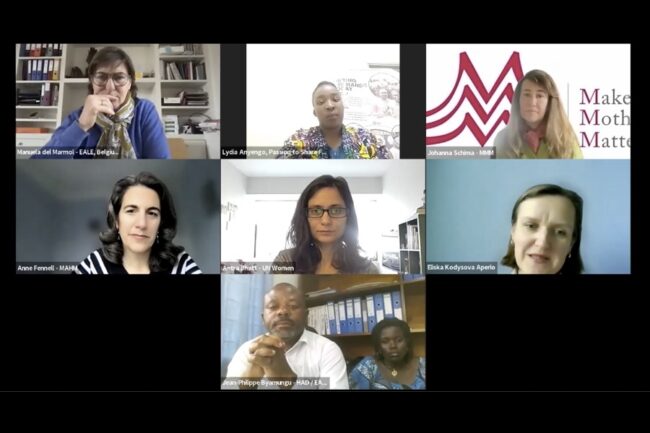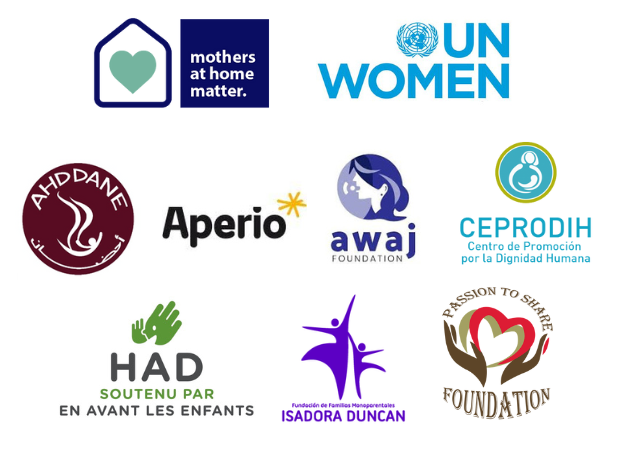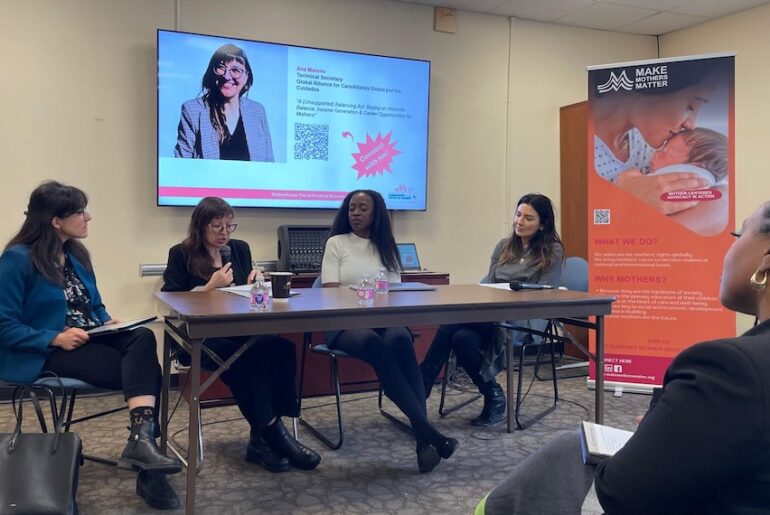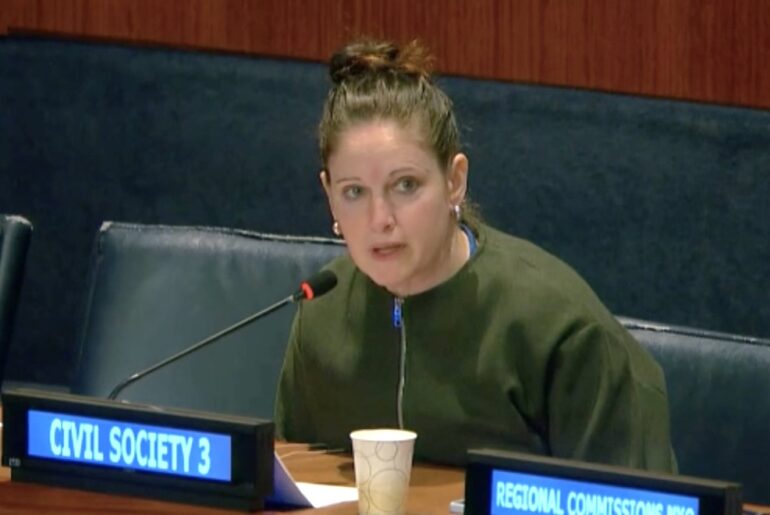Solutions from across the world for single mothers – CSocD61 event recap
19.02.23
UN New York - Our virtual #CSocD61 event, which took place on the margins of the 61st UN Commission on Social Development, brought together expert speakers from varied backgrounds to discuss the situation of single mothers in diverse contexts across the world. Their vulnerability to poverty and exclusion, the multiple challenges they face, and the solutions that are implemented to support them, notably in accessing decent work, were the key drivers of the discussion.

The event, titled ‘Leave no single mother behind‘, took place as a webinar on 15 February 2023.
Statistics show that globally, lone parents with children head up 8% of all households, with lone mothers the overwhelming majority (84.3 per cent). However, these statistics do not reveal the whole story: many lone mothers live in extended households, in particular those that need to balance unpaid care and paid care work. They are therefore not counted as such and remain invisible to policy makers.
Our event highlighted the different socio-economic and cultural contexts and the many possible reasons behind single motherhood: from abandonment or rape to divorce or separation, to fleeing a violent or abusive relationship, single motherhood is rarely a choice, and often puts these mothers and their children in extremely vulnerable situations.
We also looked at the many solutions in response to these varied contexts. Most combine practical aspects like sheltering, providing childcare services, and legal and emotional support, with training and counseling. They aim at rebuilding these mothers’ self esteem, equip them with both education on practical aspects of their life – like financial literacy, and professional skills – so they can regain their autonomy and take their place in the community.
Policies are another important lever for change and the focus of MMM’s advocacy work. The EU Child Guarantee, which was adopted in 2021 by EU member States, aims at reducing child poverty in Europe, and is therefore a first important step to support single mothers as many of those children living in poverty belong to single parents households. Still, this is not enough and MMM also provided some policy recommendations to specifically support single mothers.
Soon to come, a full report and key takeaways from the discussion
Recording of the event
Thank you to all our speakers
Moderator:
- Anne Fennell, Chair, Mothers At Home Matter (MAHM)
Panel:
Setting the scene:
- Antra Bhatt, Statistics specialist, Research and Data Section, UN Women – The statistics and realities of single mothers: making them visible to policy makers – Powerpoint presentation
Solutions from the ground from MMM Network and beyond:
- Nazma Akter, Founder, Awaj Foundation, Bangladesh – Services (e.g. childcare, healthcare, counseling) and advocacy for mothers and child rights in the garments industry – video message
- Eliska Kodysova, CEO, Aperio, Czech Republic – Single but strong: a program to empower single parents – Powerpoint presentation
- Mahjouba Edbouche, Founder & president, Ahddane, Morocco – Support for single mothers through emotional and legal counseling, childcare service and mother and child shelter – video message
- Lydia Anyengo, Founder and Executive Director of Passion to Share Foundation and Kokomelon Daycare/Nursery School, Kenya – Empowering mothers in the slums of Kibera through professional training and childcare services
- Adriana Abraham, Founder and Director, CEPRODIH, Uruguay – Training programs for socio-economic inclusion of mothers in vulnerable situations – video message
- Yolanda Arias González, Director of human resources and researcher at the State Observatory for Single-Parent Families, Isadora Duncan, Spain – Advocacy and support for single parents in vulnerable situations (e.g. training in personal finance and saving possibilities, legal and administrative support) – Presentation
- Jean-Philippe Byamungu, Director, HAD/En Avant les Enfants, DRC – Training and empowering young single mothers in the agricultural sector and making them count in the community – video message
Solutions from governments
- Johanna Schima, head of EU delegation, Make Mothers Matter – Examples of good practices from the governments of the European Union: the EU Child Guarantee as a first step in the right direction + MMM recommendations to EU countries – Powerpoint presentation
→ See also our pre-event article with background information and the speakers bios
Time Poverty and the Motherhood Penalty
Unveiling Economic and Social Injustices
09.07.24
Mothers play an essential role in families by ensuring their loved ones are nourished, educated, and healthy, but their unpaid care work often leads to economic and social injustices, known
Envisioning care as a common thread to global crises
29.07.24
UN New York - Our virtual HLPF side-event brought together experts to shed light on how the various global crises we face (in particular climate change and other environmental crises,
We call for multi-stakeholder approach to recognise and support unpaid care work
21.07.24
UN New York - Participating in the meeting of the UN Economic and Social Council (ECOSOC) on care and support systems, MMM reaffirmed the principle of co-responsibility, which should underpin









